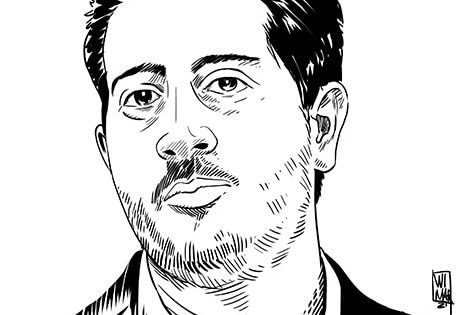(CPJ/IFEX) – The following is a 9 April 2003 CPJ press release: CPJ CONDEMNS CONVICTIONS OF INDEPENDENT CUBAN JOURNALISTS New York, April 9, 2003-The Committee to Protect Journalists (CPJ) deplores the convictions of 28 independent Cuban journalists who have been detained since a crackdown began there on March 18. The journalists’ one-day trials were held […]
(CPJ/IFEX) – The following is a 9 April 2003 CPJ press release:
CPJ CONDEMNS CONVICTIONS OF INDEPENDENT CUBAN JOURNALISTS
New York, April 9, 2003-The Committee to Protect Journalists (CPJ) deplores the convictions of 28 independent Cuban journalists who have been detained since a crackdown began there on March 18. The journalists’ one-day trials were held on April 3 and 4 behind closed doors.
On Monday, April 7, courts across the island announced prison sentences for the journalists, ranging from 14 to 27 years. According to a communiqué issued by several well-known dissidents, in several cases defense lawyers did not have access to their clients or only had a few hours to prepare their cases.
“We were deeply concerned when the Cuban government took advantage of international events to launch this crackdown on the press last month,” said CPJ acting director Joel Simon. “And our concern turned to outrage when we learned that almost 30 journalists have been sentenced to lengthy jail terms for merely expressing their views.”
Prominent journalists Raúl Rivero and Ricardo González Alfonso, whose trials were held on April 4, were each sentenced to 20 years in prison. The two men were accused of, among other charges, creating the journalists’ organization Sociedad de Periodistas Manuel Márquez Sterling and its “subversive” magazine, De Cuba.
Rivero and González Alfonso were tried under Article 91 of the Penal Code, which imposes lengthy prison sentences or death for those who act against “the independence or the territorial integrity of the State.”
In addition to being charged under Article 91, some journalists were prosecuted for violating Law 88 for the Protection of Cuba’s National Independence and Economy, which imposes up to 20 years in prison for anyone who commits “acts that in agreement with imperialist interests are aimed at subverting the internal order of the Nation and destroy its political, economic, and social system.”
The detentions of journalists and political dissidents, who are often accused of being “counterrevolutionaries” at the service of the United States, began on March 18 and continued for three days. Police raided and searched the journalists’ homes, confiscating books, typewriters, research materials, cameras, computers, printers, and fax machines. The journalists are currently imprisoned in several jails administered by the State Security Department.
According to the Cuban Commission for Human Rights and National Reconciliation, a dissident organization, the following prison sentences have been announced by the courts:
Ricardo González Alfonso (20 years), Víctor Rolando Arroyo (26 years), Normando Hernández González (25 years), Raúl Rivero (20 years), Oscar Espinoza Chepe (20 years), Julio César Gálvez (15 years), Edel José García (15 years), Adolfo Fernández Saínz (15 years), Jorge Olivera Castillo (18 years), Omar Rodríguez Saludes (27 years), Manuel Vázquez Portal (18 years), Héctor Maseda Gutiérrez (20 years), Mijaíl Barzaga Lugo (15 years), Carmelo Díaz Fernández (15 years), Pedro Argüelles Morán (20 years), Pablo Pacheco Ávila (20 years), Alejandro González Raga (14 years), Alfredo Pulido Lopez (14 years), Mario Enrique Mayo (20 years), and Fabio Prieto Llorente (20 years).
According to the Miami-based news Web site Nueva Prensa Cubana, which posts reports filed by independent Cuban journalists, the following journalists have also been sentenced: Iván Hernández Carrillo (25 years), José Luis García Paneque (24 years), and Juan Carlos Herrera (20 years).
CPJ is still trying to determine the sentences of journalists Miguel Galván Gutiérrez, José Ubaldo Izquierdo, Léster Luis González Penton, Omar Ruiz Hernández, and José Gabriel Ramon Castillo, all of whom face lengthy jail terms.
For more information about press freedom conditions in Cuba, visit www.cpj.org. CPJ is a New York-based, independent, nonprofit organization that works to safeguard press freedom around the world.


